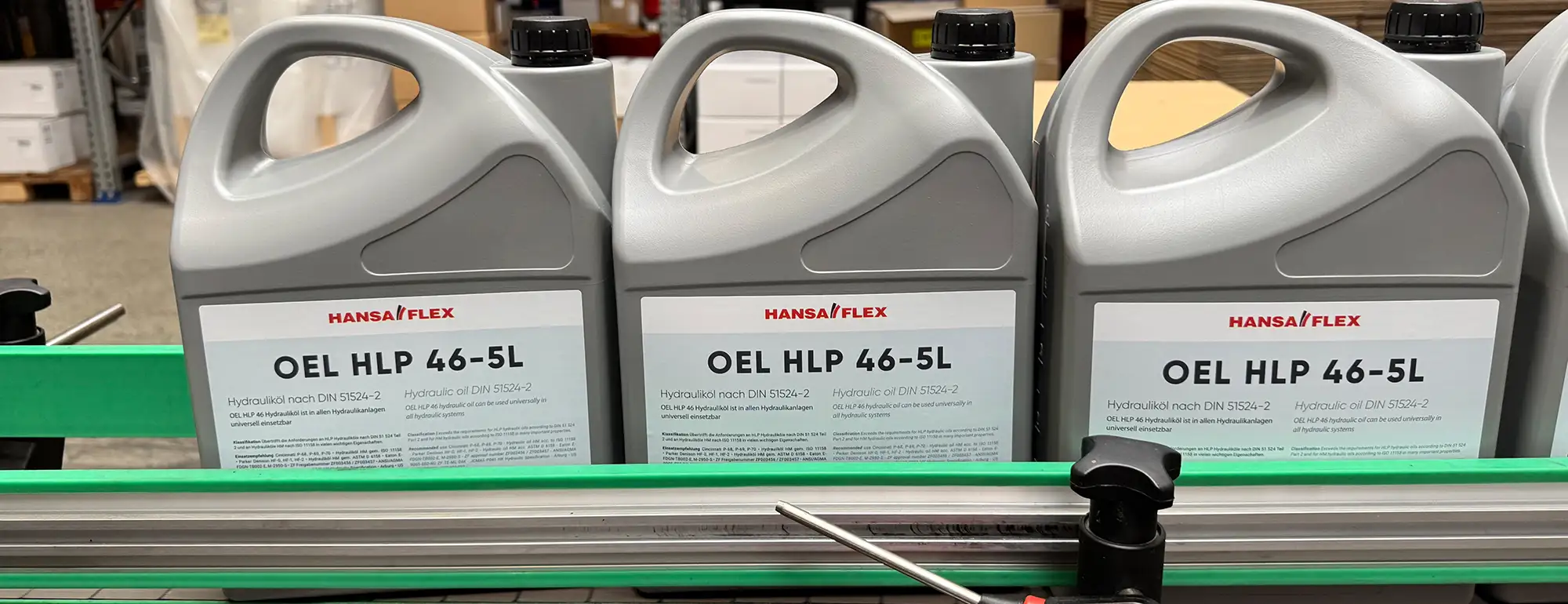Maintenance makes an important contribution to the operational safety of hydraulic systems. Maintenance intervals apply to the planned measures for the maintenance of systems and components, such as the lubrication of moving parts, the replacement of seals and the treatment of areas adversely affected by corrosion.
Maintenance intervals depend on the machine or system type and are specified in the operating instructions or manual. Regular maintenance work is particularly important for hydraulic systems in order to ensure their safety and proper functioning. This work includes the cleaning of surfaces, inspection of coatings for rust formation and subsequent treatment with corrosion protection agents.
Construction machinery and agricultural equipment that frequently work in tough environments often require more intensive maintenance measures. It is particularly important to regularly inspect pipelines under stress due to bending or mechanical loads. Experience at HANSA‑FLEX indicates that maintenance work, checks and inspections should be performed at least every twelve months and any damage rectified immediately.
HOW TO: Maintenance intervals for hydraulic systems
Determining maintenance intervals
Tip: Be guided by the information in the manual for the machine or system – in extreme applications, by all means shorten the intervals.
Carry out regular maintenance measures
Tip: Lubricate, replace seals, clean surfaces – sounds simple but saves costly repairs.
Keep an eye on areas susceptible to corrosion
Tip: Detect rust at an early stage and treat with corrosion protection agents – this greatly prolongs a component’s service life.
More intensive maintenance in tough environments
Tip: Regularly check pipelines in particular – mineral aggregate impacts that damage the protective surface and damage due to bending are often detected too late.
Checking cycles & immediate measures
Tip: Treat visibly damaged surfaces immediately and use a corrosion protection spray. Do not wait until the next maintenance date.
Carry out only activities that are permitted and can be done well
Welding work and metal connections in hydraulic systems may be done only by certified welders – anything else compromises safety and the reliability of the system.
Tip: Carry out only those maintenance measures that you are technically and legally permitted to do.
And by the way: Repairs to hydraulic hose lines are not permitted in principle. Replace defective hydraulic hose lines immediately. The X-CODE is a particularly practical system for making available all the data for a hydraulic hose line in such a way that eliminates mix-ups.
Further professional qualification
Many tasks involved with hydraulics may be performed only by authorised persons qualified to conduct inspections of hydraulic line equipment in accordance with the German Ordinance on Industrial Health and Safety (BetrSichV) and TRBS 1203-2019. The course at the International Hydraulics Academy (IHA) is one way of obtaining the required knowledge.
In addition to short training courses for authorised persons qualified to conduct inspections, the IHA offers a modular range of training courses that covers all the main aspects of hydraulic line equipment. From the basic introduction to the subject of hydraulic hose lines through sealing and cutting ring technology to pipelines, servicing and maintenance right up to cutting and clamping ring fittings, the IHA offers 23 seminar modules that build upon one another and take attendees from the beginner to the professional level of competence in graduated steps.
More information:
-
![[Translate to Englisch:]](/fileadmin/hansaflex/News_and_Events/Online_Magazin/Technik/Autoren_Hansaflex/sven_boetjer.jpg)
Sven Bötjer
Product Manager Pipe and Special Fittings,
Accessories and Tools

 Mexico
Mexico



